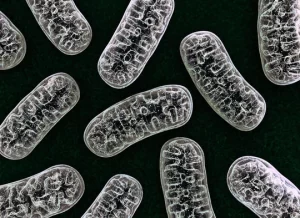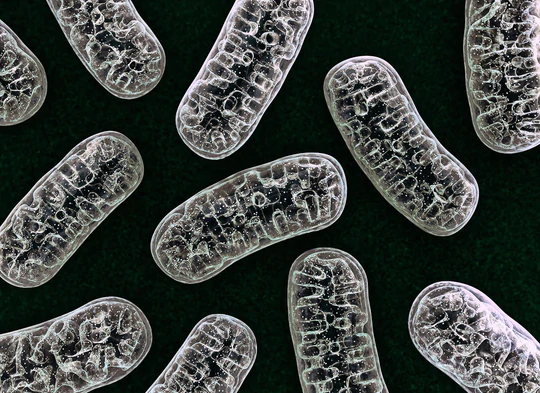Scientists found NMN administration preserved mitochondrial health and prevented heart failure in mice deficient in a molecule that makes them susceptible to heart disease.
In 2017, scientists from Case Western Reserve University, who published a study in the Journal of Molecular and Cellular Cardiology, found nicotinamide mononucleotide (NMN) supplementation promotes the health of the cell’s powerhouse, the mitochondria, and prevents heart failure. Previous studies have associated mitochondrial dysfunction with heart failure, and researchers have recognized reductions in nicotinamide adenine dinucleotide (NAD+) levels in mitochondrial dysfunction.
While NAD+ is an essential molecule for metabolism and mitochondrial health, NAD+ levels fall in the body with age. Healthy NAD+ levels support various molecular functions in the body, including proteins called sirtuins. These proteins play essential roles in cellular mechanisms by removing molecular tags from other proteins in the cell so they can function to maintain mitochondrial health.
In their experimentation for the study, the researchers used mice deficient in a molecule called KLF4, which regulates mitochondrial health. KLF4-deficient mice have higher sensitivity to heart pressure overload-induced heart failure due to their dysfunctional mitochondria. The underlying cellular mechanisms explaining these effects remained unknown, and the team of researchers wanted to know why.
On the mitochondrial proteins of KLF4-deficient mice, the team found significantly higher amounts of molecular tags, which sirtuins, namely Sirt3, should remove. In heart-health-impaired mice, the scientists observed reduced levels of Sirt3 along with low NAD+ concentrations in the hearts of the animals. Lower NAD+ levels could inhibit the function of NAD+-dependent Sirt3, leaving higher levels of molecular tags on mitochondrial proteins that may inhibit mitochondrial health.
To raise the levels of NAD+ content in the mice, the researchers injected the animals with NMN, a NAD+-boosting molecule. Following the administration of NMN, the activation of inflammation genes in KLF4-deficient mice dropped. Overactivation of inflammation genes have shown to play a causal role in heart disease, according to previous studies. The NMN treated mice had normal cardiac responses to induced blood pressure overload along with reduced expression of inflammation genes.
A high mortality rate exists in KLF4-deficient mice, and NMN administration conferred a 100% survival rate in these mice following the induction of high blood pressure in the heart. These results demonstrated NMN prevents heart failure in these mice sensitive to blood pressure-induced heart failure. The prevention of heart failure and mitochondrial health also has a correlation. KLF4-deficient mice typically have degenerated and fragmented mitochondria, however, NMN treatment almost completely restored the structure of the mitochondria.
“Short-term administration of NMN, a precursor of NAD+, preserved mitochondrial homeostasis and rescued heart function from pressure overload-induced heart failure,” stated the scientists of the study. They also noted that NMN may have preserved mitochondrial function and prevented heart failure by boosting NAD+ levels, improving sirtuin function. Increased sirtuin function led to reduced molecular tagging, which improved the activation of proteins in mitochondria important for cellular energy production and health. Following their findings, NMN could be an effective therapy for heart failure.
Full Text Sources
